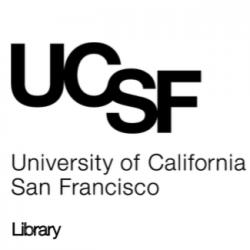
The University of California-San Francisco (UCSF) has become a strange place. While the university certainly hosts faculty doing world-class research, it has simultaneously become the academic home for conspiracy theorists, including anti-vaxxers.
For example, a group of journalism students taught by UC-Berkeley's Elena Conis, an anti-vaccine sympathizer, recently were bussed into UCSF to listen to a talk by anti-GMO activist Gary Ruskin. Mr. Ruskin operates an organization called U.S. Right to Know, whose primary benefactor is the Organic Consumers Association, a group that, as we enumerated previously, publishes anti-vaccine propaganda; promotes alternative medicine; lies about nuclear power; and peddles conspiracy theories, including 9/11 trutherism, chemtrails, FEMA's secret plan to implement martial law, and pesticides causing school shootings.
On Glyphosate, Who Do You Trust: UCSF or Everybody Else?
UCSF is back in the news again. The university just posted an article titled "UC and UCSF Say No to Harmful Herbicide Glyphosate," despite the fact that the scientific consensus is that glyphosate isn't harmful. That conclusion has been reached by numerous organizations, including the U.S. EPA, the European Union (specifically, the European Food Safety Authority), the World Health Organization (WHO), and regulatory agencies in Canada, France, Germany, Switzerland, Australia, New Zealand, Brazil, Japan, and South Korea.
The article itself is utterly bizarre. It cites the aforementioned Organic Consumers Association -- the same group that promotes anti-vaxxerism, 9/11 trutherism, chemtrails, and other conspiracy theories -- as an authoritative source. Indeed, the article gives the impression that UCSF is collaborating with them, as well as with activist organizations like the Environmental Working Group and Greenpeace.
The article goes on to say that UCSF's landscaping is "chemical-free" (no dihydrogen monoxide, eh?), but then admits that not using "chemicals" is actually bad for workers and the environment:
"Vaisset-Fauvel admits there are challenges to chemical-free landscaping, such as the increased costs of using manual labor, the difficulty of preserving native plants, and managing for fire risk. Even still, he feels good about not using glyphosates..."
Let's review: Avoiding "chemicals" like glyphosate is (1) harder on workers, (2) bad for biodiversity, and (3) increases the risk of wildfires. (But hey, they feel good about it!) It might be worse than that. A statement by the Weed Science Society of America said:
"Prohibiting glyphosate use may also result in less effective weed control that could lead to reduced crop yields and quality, buildup of weed seed banks, weed-clogged waterways, degraded wildlife habitats, risks to human and animal health from toxic weed species. It is possible that labor costs may go up and that tillage may increase along with fossil fuel use and soil erosion. In addition, hand-labor can carry the very real risk of musculoskeletal injuries and of skin cancer from overexposure to the sun."
It's amazing that we're still having a debate over glyphosate. Unfortunately, as Dr. Joe Schwarcz of McGill University correctly noted, "With the plethora of papers being published, some very good, some very bad and most mediocre, just about any stance [on glyphosate] can be supported."
Unfortunately, UCSF has decided to come down on the side of cranks and activists.



